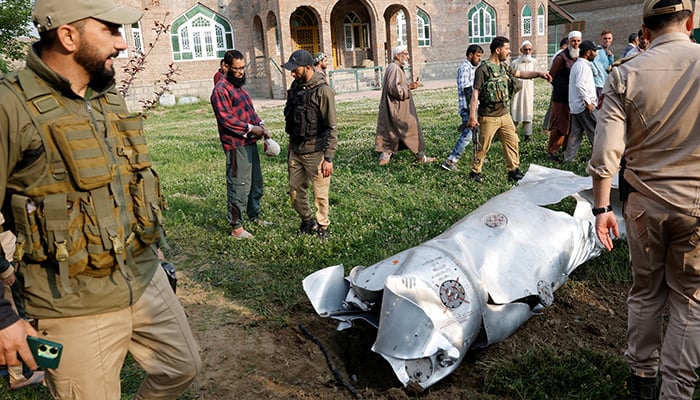
Indo-Pak relations reached new lows on 07 May 2025 with Indian aircraft carrying out airstrikes against Pakistan. The air raid was condemned in their entirety by the Government of Pakistan as “an act of war” and sent out warnings to retaliate firmly.
Indian planes, the Pakistani army stated, had entered the Pakistani side of the international border on Wednesday morning and bombed within the Punjab province on the international border. Indian planes were intercepted by incoming aircraft by the Pakistan Air Force (PAF) and successfully destroyed. People of Narowal district reported that they also heard massive explosions, after which air firing was heard, and local TV channels aired news of burning wreckage spread in a field which they purported to be of the Indian plane downed.
In a later-day post press conference, Pakistan’s Foreign Ministry labeled the attack “blatant aggression without provocation,” and further stated that the Indian assertion that it was an attack on “terror infrastructure” was a ruse for cover to hide an incursion into Pakistan. Islamabad authorities continued to speculate the airstrike was a pre-arranged act by New Delhi to shift the focus away from domestic unrest and Indian elections soon to be held.
India, on the other hand, called the raid “surgical strike” against those militants who had planned the latest Pahalgam attack in Indian-occupied Kashmir. The attack was referred to as “the return of Pahalgam” by Indian officials after a successful raid in September in which a few Indian troops were killed. Independent verification of such reports is not available.
Pakistani government officials brushed off accounts of any militant hideouts within the area attacked and extended an open invitation to foreign tourists and media to visit and verify. “There were no terrorist hideouts. The Indian warplanes bombed a populated area—this is an unmistakable act of state terrorism,” Inter-Services Public Relations (ISPR) Director General Major General Ahmed Bashir said.
Pakistani news covered the attack wall-to-wall, with local-based television channels such as Geo News and ARY News reporting video of demolished civilian infrastructure and the news by fearful citizens. Foreign commentators, even in local think tanks, cautioned that the attack would initiate an evil cycle of retaliatory bombings between two nuclear arch-rivals.
In an evening crisis meeting called in haste, Pakistan’s National Security Committee vowed to protect the sovereignty of the country “at all costs”. Prime Minister Saad Rafique led the country on television, calling for restraint but making it clear that Pakistan could strike back. He said: “We will not take a step towards raising the level of conflict, but we will not remain silent when confronted with aggression.”.
At the same time, other world leaders and the United Nations urged restraint. The UN Secretary-General’s office issued a statement calling on both sides to “de-escalate immediately and seek to resolve their differences through a dialogue.”
Until now, Pakistan has been on high alert, with soldiers on the Line of Control reinforced and air defense facilities put on stand-by. The crisis is also on stand-by, and local analysts await the unfolding of any fresh twist in the two capitals.
